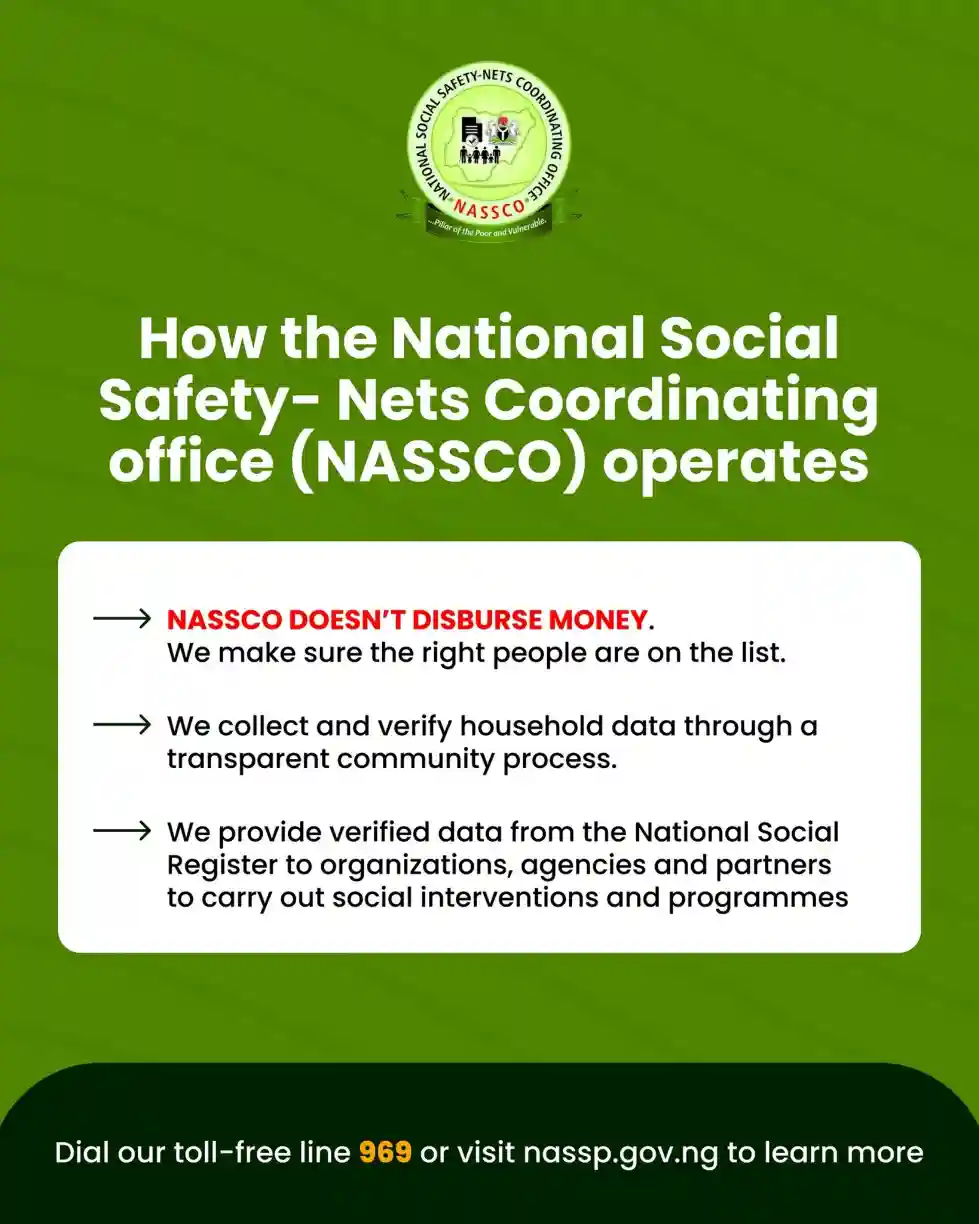The Federal Government has expanded the National Cash Transfer Programme, also known as the Household Uplifting Programme (HUP), under the National Social Safety Nets Project (NASSP) supported by the World Bank. The initiative aims to provide N25,000 to more than 15 million targeted poor and vulnerable Nigerian households through a transparent and structured payment process.
Beneficiaries of the programme will be selected from the National Social Register (NSR), which is made up of State Social Registers (SR) of poor and vulnerable households across the country. The registers are developed under the supervision and guidance of the National Social Safety Nets Coordinating Office (NASSCO) in Abuja.
At the National Social Safety Nets Coordinating Office, officials explained that their role is to ensure that support reaches the right people. “We collect, verify, and share household data transparently with partners who deliver social programmes across Nigeria,” a NASSCO official said. The office, however, does not disburse money. Instead, it ensures that the verified data of eligible households are made available to relevant agencies and partners responsible for implementation.
The National Cash Transfer Office (NCTO) oversees the disbursement process, working closely with the State Cash Transfer Units (SCTUs) that manage operations at the state and local government levels. Each local government area has a cash transfer team that implements activities within communities to ensure timely and fair delivery.
The NCTO’s responsibilities include providing technical support, facilitating the enrolment of beneficiaries, and issuing programme cards to recipients. It also integrates Payment Service Providers (PSPs) into the system under NASSP, ensuring effective coordination of payments. In addition, NCTO conducts performance assessments, supports grievance redress, and monitors activities to prevent fraud and ensure accountability.
According to Wale Edun, the expanded N25,000 cash transfer will be part of a new ward-based development initiative that will channel resources directly to Nigeria’s 8,809 wards across the 774 local government areas.
“This is why there is a transparent, accountable, and robust system of providing direct payments to 15 million households,” said Finance Minister Edun. The initiative aims to improve livelihoods, enhance financial inclusion, and strengthen social protection for millions of poor families nationwide.

